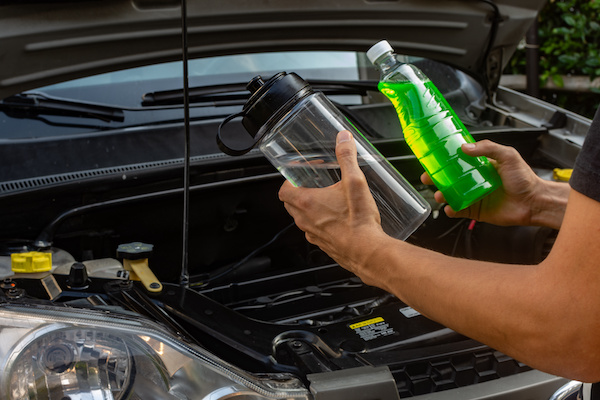Posted on 8/31/2023

We've all heard the tales spun around car campfires – those urban legends whispered from one person to another. But it's time to put on our detective hats, grab our wrenches of truth, and dismantle the most perplexing car myths! From the color of your car affecting your speeding habits to the mysterious rituals of warming up your engine, we're about to guide the twists and turns of automotive lore. 1. Red Cars Get More Speeding Tickets The color of your car has no impact on your likelihood of getting a speeding ticket. While flashy red cars might catch the eye, traffic cops don't have a preference for ticketing them. What truly matters is your driving behavior and adherence to speed limits. 2. Premium Fuel Makes Your Car Run Better Unless your car specifically requires premium fuel, filling up with it won't make a difference in performance. Most cars run perfectly fine on regular unleaded gasoline. Using premium fuel when it's not needed is just a cos ... read more
Posted on 7/31/2023

Buying your first car is an exciting milestone, and choosing the right coupe can make the experience even more thrilling. Coupes are known for their sleek designs, sporty handling, and captivating driving dynamics, making them an attractive choice for young drivers looking for style and performance. Before we start, here are a few great coupes in our opinion: 2022 Subaru BRZ 2017-2023 Audi TT S Line or S 2020 BMW M2 2022 BMW 420i Luxury 2019 Ford Mustang Bullitt 1. Budget Considerations As a first-time car buyer, it's essential to set a realistic budget and stick to it. Coupes come in a wide range of price points, so determine how much you can comfortably spend without straining your finances. Remember to factor in other costs, such as insurance, maintenance, and registration fees, when establishing your budget. 2. Reliability and Safety Reliability and safety should be top priorities when choosing your first car. Look for ... read more
Posted on 6/30/2023

For many people, listening to music while driving is an enjoyable way to pass the time and enhance the driving experience. However, when the volume is excessively loud or when headphones are worn, it poses serious risks to both the driver and other road users. Here are just a few of the reasons why you shouldn't do it:∥Distraction from External Auditory CuesWhen driving, our sense of hearing plays a crucial role in alerting us to potential dangers on the road. External auditory cues, such as sirens, horns, screeching tires, or the sounds of approaching vehicles, help us assess our surroundings and react accordingly. Driving with very loud music or wearing headphones diminishes our ability to hear these critical cues, leading to delayed reaction times and a higher risk of accident ... read more
Posted on 5/31/2023

Have you ever experienced your steering wheel shaking or vibrating while driving? It can be a frightening experience, especially if you don't know what's causing it. Your steering wheel is one of the most critical components of your car, and if it's vibrating or shaking, it's a sign that something is not working correctly. Keep reading to learn the most common reasons why your steering wheel might shake or vibrate and what you can do to correct it. Misaligned Wheels - Misaligned wheels are one of the most common explanations for a shaky steering wheel. When your wheels are not correctly aligned, they will create a wobbling motion that will be felt in your steering wheel. Misalignment can be caused by hitting a pothole or curb or just through normal wear and tear. To fix this issue, you will need to take your vehicle to a trusted auto repair shop to have your wheels aligned. Unbalanced Tires - If your tires ... read more
Posted on 4/28/2023

As a vehicle owner, you may be tempted to top off your engine's coolant with plain water when you notice the level is low. However, while it may seem like a quick fix, it's necessary to understand the risks and drawbacks of using water instead of the suggested coolant. Coolant serves multiple functions in your engine, such as keeping it from overheating, preventing rust and corrosion, and lubricating the water pump. A 50/50 mixture of antifreeze and water is typically recommended for most vehicles, as it provides the optimal balance of protection and performance. While water can help to lower engine temperature, it doesn't provide the same level of protection as coolant. Water can also freeze in colder temperatures, causing damage to your engine block and radiator. Additionally, using only water instead of a proper coolant mixture can lead to corrosion and clogging within your engine's cooling system, which can ultimately result in costly repairs. It's important ... read more